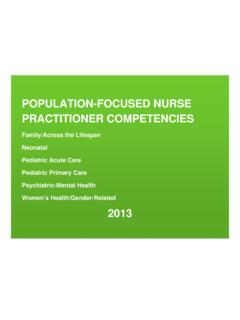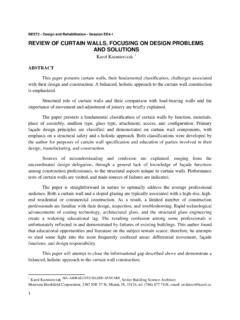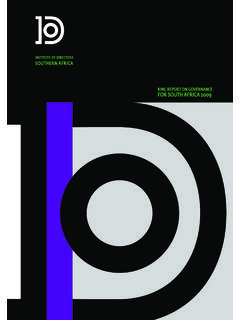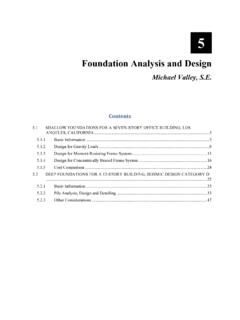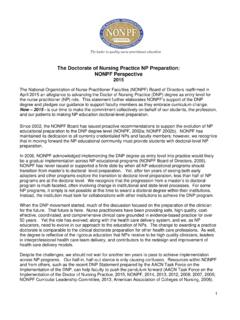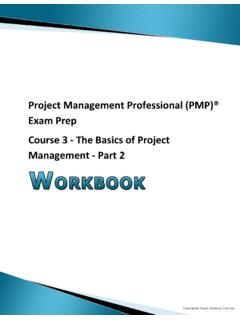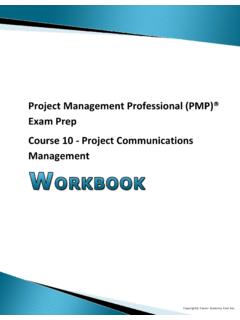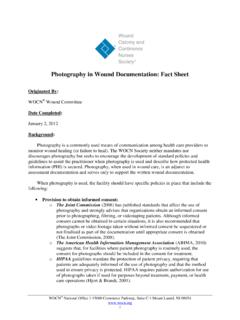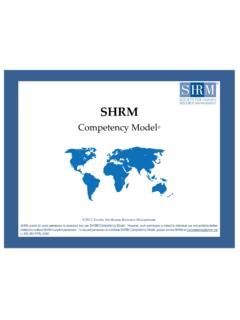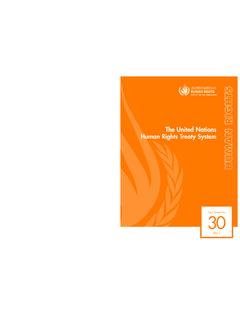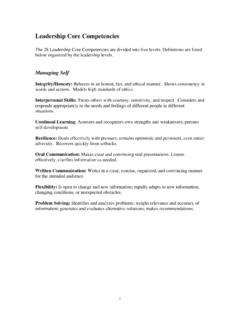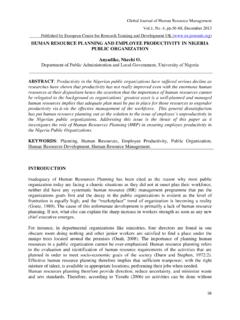Transcription of AC Coaching Competency Framework
1 CF07/21 1 AC Coaching Competency Framework Coaching Competencies for Coaches 1. Meeting ethical, legal and professional guidelines 2. Establishing the Coaching agreement and outcomes 3. Establishing a trust-based relationship with the client 4. Managing self and maintaining Coaching presence 5. Communicating effectively 6. Raising awareness and insight 7. Designing strategies and actions 8. Maintaining forward momentum and evaluation 9. Undertaking continuous coach development Additional Competencies for Executive Coaches 10. Working within the organizational context 11. Understanding leadership issues 12. Working in partnership with the organization CF07/21 2 Coaching Competencies and Indicators for Coaches 1. Meeting ethical, legal and professional guidelines Indicators of competence: Follows the AC s professional standards and codes of conduct, including the AC Global Code of Ethics for Coaches, Mentors and Supervisors Acts ethically and with the highest integrity Promotes the Coaching profession in a positive light to all stakeholders Complies with the prevailing laws of the country in which the Coaching takes place and/or client organization is operating, whichever is the most applicable and stringent Clearly communicates how Coaching is different from other helping professions Is aware of professional boundaries and refers on to another professional as appropriate 2.
2 Establishing the Coaching agreement and outcomes Indicators of competence: Clearly explains the Coaching process and own Coaching approach, models and techniques Helps the client establish Coaching goals and outcomes and agrees an approach to working with the client that will achieve them Agrees a formal Coaching agreement with client and all stakeholders, including clear and measurable outcomes, plus confidentiality, logistics of Coaching sessions (duration, frequency, location), purpose, contingencies, monitoring and reporting on progress, and commercial arrangements Establishes clear roles, responsibilities and boundaries between the different stakeholders, including coach and client CF07/21 3 3. Establishing a trust-based relationship with the client Indicators of competence: Treats people equally and fairly, with respect and dignity Is optimistic for and encourages self-belief in the client Establishes a high level of rapport to build an open dialogue with the client Accepts the client as is and believes in the client s potential and capability Acts openly and honestly, including tackling difficult conversations with the client, using self and personal reactions to offer client feedback, avoiding colluding with the client on issues that block progress Maintains agreed levels of confidentiality 4.
3 Managing self and maintaining Coaching presence Indicators of competence: Pays close attention to the client, staying fully present and engaged Remains focused on the agreed client agenda and outcomes Acts flexibly whilst staying aligned to own Coaching approach Stays aligned to personal values whilst respecting the values of the client Works to ensure interventions get the best outcome for the client CF07/21 4 5. Communicating effectively Indicators of competence: Demonstrates effective listening and clarifying skills and differentiates between what is said and what s left unsaid Uses straightforward, easy-to-understand language that moves the client towards the agreed outcomes Adapts communication style to reflect the client s needs and outcomes Provides relevant information and feedback to serve the client s learning and goals Communicates clearly, confidently and credibly with the client 6. Raising awareness and insight Indicators of competence: Asks questions to challenge client s assumptions, elicit new insights, raise self-awareness and gain learning Helps broaden a client s perception of an issue and challenges to stimulate new possibilities Supports the client to generate options to achieve agreed outcomes Provides observational feedback where relevant, leaving client free to choose to act upon it or not Uses self as a resource for the development of the client s self-awareness and learning by offering here and now feedback CF07/21 5 7.
4 Designing strategies and actions Indicators of competence: Supports the client to build strategies to meet their outcomes Inspires the client to identify and implement self-directed learning opportunities Leaves accountability with the client while following through on own actions and commitments Encourages the client to seek support from others to help achieve the client outcomes Provides support while the client tries out new ways of working/behaviours 8. Maintaining forward momentum and evaluation Indicators of competence: Maintains an outcome-focused approach Asks powerful questions that move the client forwards towards the agreed outcome Checks and acknowledges client progress and achievements Explores what is working, what is getting in the way and challenges lack of progress Discourages dependency on the coach and develops the client s ability to self-coach Checks the client s motivation to apply learning from the Coaching Measures effectiveness of Coaching CF07/21 6 9.
5 Undertaking continuous coach development Indicators of competence: Regularly requests client feedback Actively reflects on Coaching practice and outcomes Acts on own critical reflections and client feedback to improve Coaching practice Participates in regular Coaching supervision to reflect on, and improve practice Participates in continuous professional development (CPD) activities Additional Competencies and Indicators For Executive Coaches 10. Working within the organizational context Indicators of competence: Understands the organizational context in which the client operates ( is aware of the long-term vision, mission, values, strategic objectives, market/competitive pressures, etc.) Understands the client s role, position and authority within the organizational system Is aware of key stakeholders (internal and external) within the organizational system Aligns Coaching goals to support organizational aims and objectives Understands the relationship between the coach, client and internal sponsor(s) of Coaching Is aware of and works with the organization s values, policies and practices, including human resource and people policies and practices Takes a systemic approach to Coaching the client, encompassing the complexities of multiple stakeholders, different perspectives and conflicting priorities CF07/21 7 11.
6 Understanding leadership issues Indicators of competence: Recognizes the challenges faced by leaders working in organizations Identifies ways of, and opportunities for, developing leadership behaviours and attributes through Coaching Demonstrates knowledge and experience of working with organizational leaders Uses language appropriate for, and recognized by, the client and organization Constructively challenges the leader to raise his/her standards in areas key to the organization Understands the leader s sphere of influence 12. Working in partnership with the organization Indicators of competence: Develops relevant networks and strategic partnerships in the organization Designs an effective Coaching contract, commercial agreement and working alliance with the client, line manager and Coaching sponsor(s) within organizational parameters and policies for Coaching Actively involves key stakeholders in the set-up, monitoring and evaluation of the Coaching whilst maintaining agreed levels of confidentiality Communicates the progress of the Coaching with key stakeholders openly and honestly, whilst maintaining agreed levels of confidentiality Identifies ways of adding value to the client at the individual, team, and organizational level
